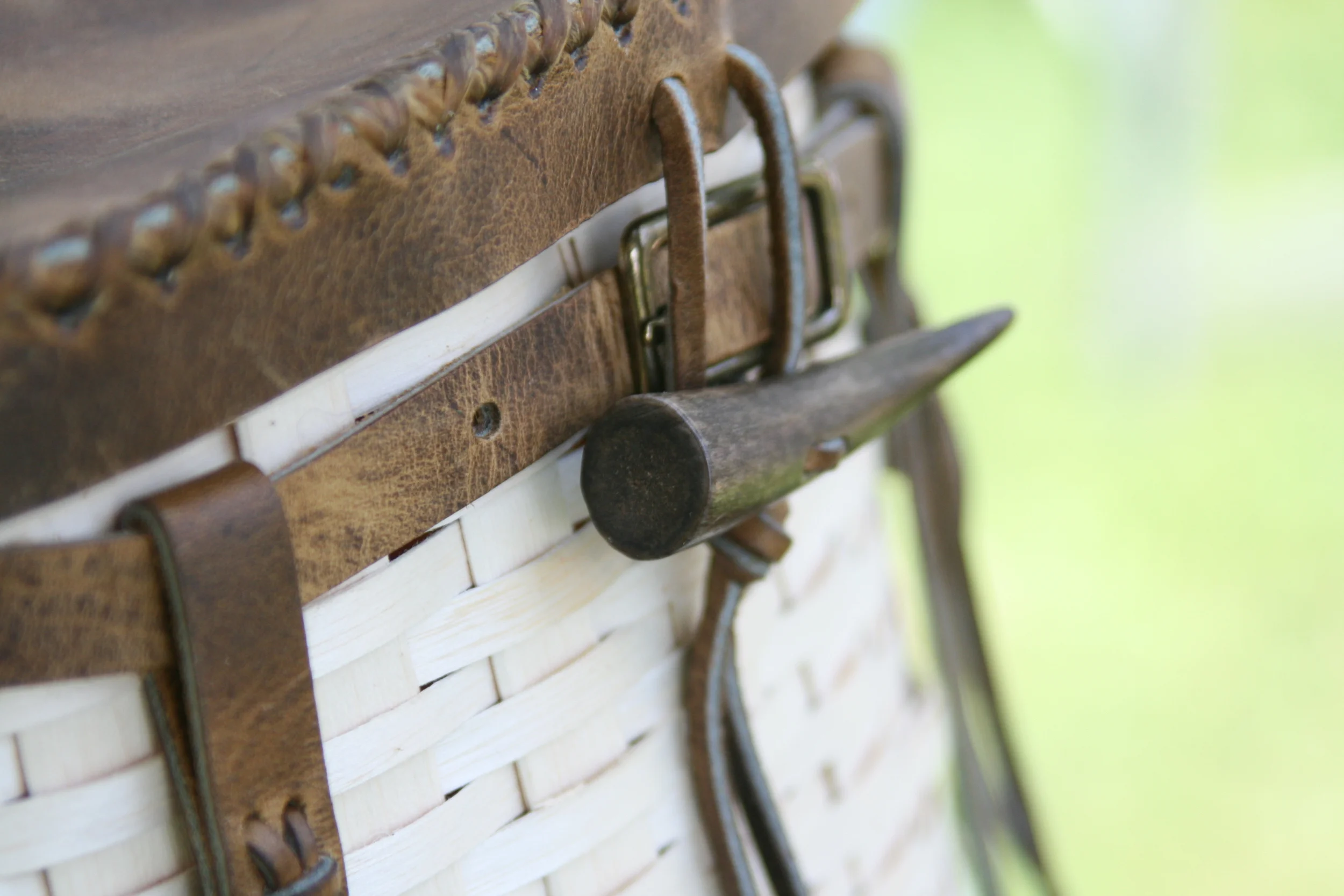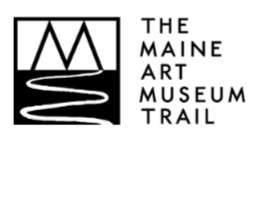During the Wabanaki Antiques Expo held on Saturday, May 9th, four Master artists from the Wabanaki communities assembled to allow Abbe visitors to pick their brains for knowledge on pieces that were
—or in some cases, were not
—made by Wabanaki people. The panel included Master Basketmaker and beadworker Jennifer Neptune, Penobscot; Master Basketmaker Richard Silliboy, Micmac; Master Birchbark worker David Moses Bridges, Passamaquoddy; and Master Basketmaker and Museum Educator George Neptune, Passamaquoddy.
A wide range of objects were brought before the panel in hopes of having them identified. Tucked among several beaded "flapper" adornments and a few pieces of southwestern pottery were a few objects that piqued the panels' interest: the first object being a seal-skin belt, likely dating back to the Indian Encampments of Bar Harbor, making it easily one hundred years old.
While other objects were identified as "non-Wabanaki," including a shaker-style basket and several pieces of Southwestern pottery, many Wabanaki baskets
—both utility and fancy styles
—were brought in to be identified. While it's difficult to identify work by specific artists, the panelists were able to identify which tribes the baskets came from based on aesthetic trends from each community. The basket that brought up the most discussion: a red "sweetgrass flat" style purse with woven ash handles. A Potawatomi flute that dates back to the early 1800s also garnered a lot of discussion, and even some playing!
 |
| Hawk Henries, a member of the Nipmuck tribe, brought the flute in for the panelists to inspect. Hawk has a lot of experience enchanting audiences with flutes; he also crafts his own eastern woodlands flutes (out of a single piece of wood!). |
The final object discussed by the panel was a beaded leather jacket. According to the oral histories around the item, it was constructed nearly two-hundred years ago, with the beadwork eventually being added by an Ojibwe beadworker. Jennifer Neptune confirmed that the beadwork was in the Ojibwe style, however, the presence of thread in the seams and use of trade-cloth and "greased" beads led panelists to believe that the jacket was made after the Civil War when thread became much more accessible for Native peoples.













































